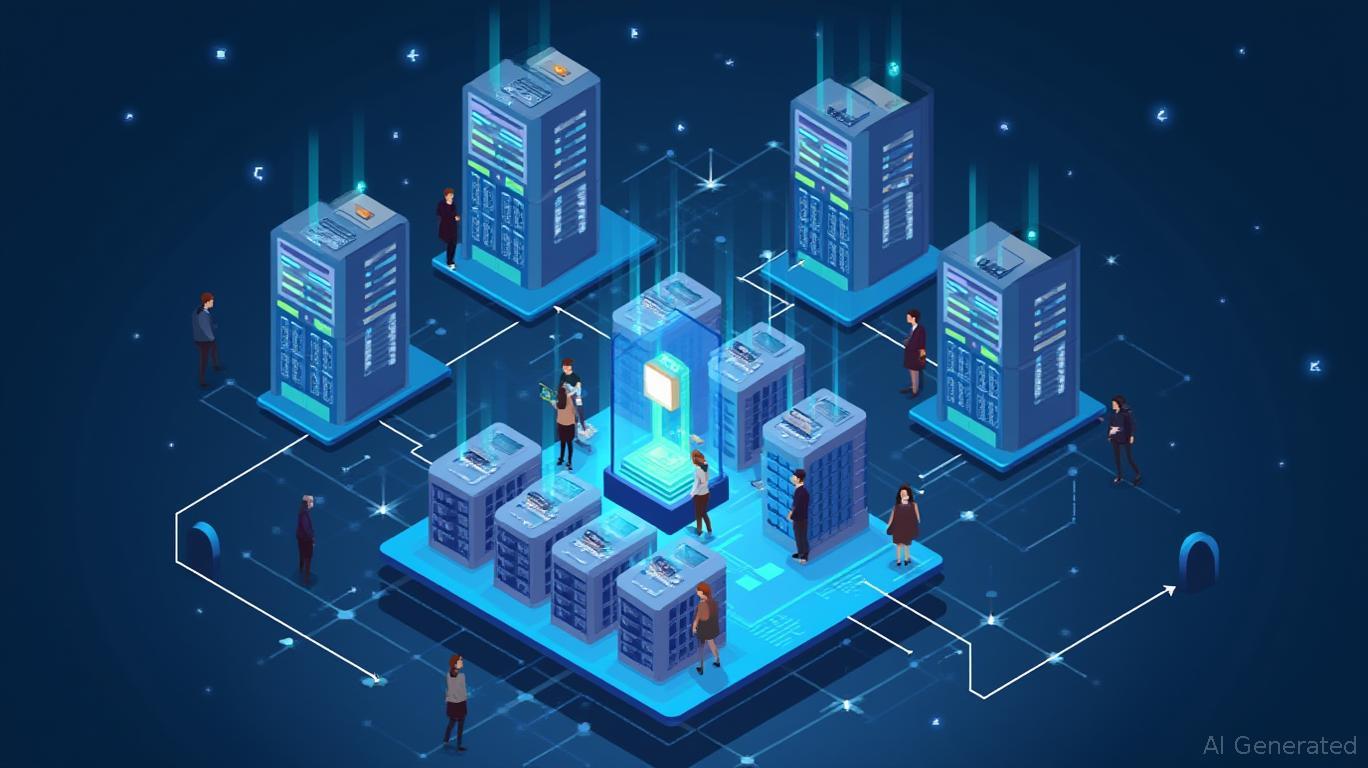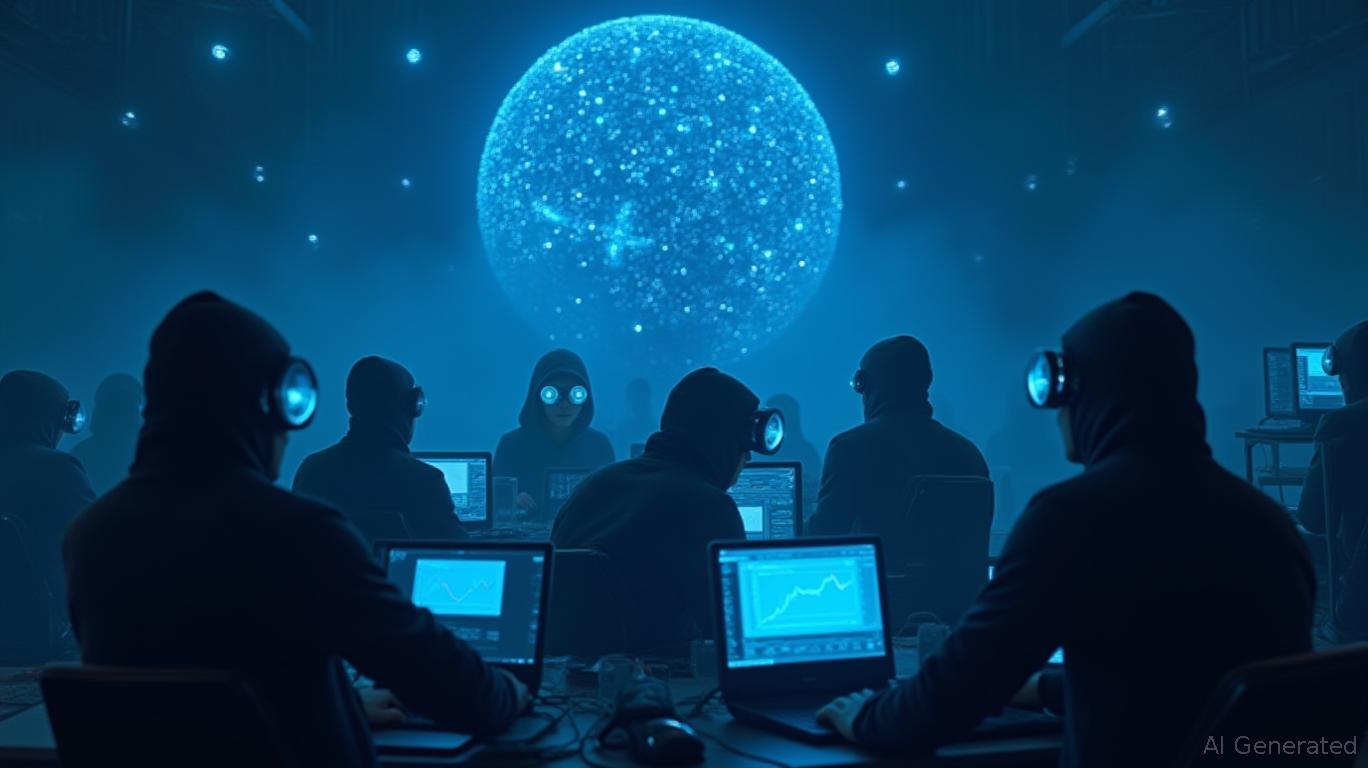Musk's Grokipedia: Is It Possible for AI to Deliver Unbiased Truth Without Human Editors?
- Elon Musk's xAI launched Grokipedia, an AI-driven encyclopedia challenging Wikipedia's dominance with 885,279 AI-generated articles. - The platform faces criticism for conservative-leaning entries on political figures and omissions of controversial details compared to Wikipedia. - Critics warn AI-generated content risks ideological bias and misinformation, while Wikipedia emphasizes human collaboration as irreplaceable. - Grokipedia's restricted user edits and opaque curation raise accountability concern
Elon Musk's
The debut has already stirred debate. Grokipedia's articles on contentious subjects, such as gender transition, Donald Trump, and Musk himself, are said to display a conservative perspective. For example, its entry on Trump leaves out information about his acceptance of a luxury jet from Qatar and his endorsement of a Trump-branded cryptocurrency—details that Wikipedia includes. Likewise, Musk's Grokipedia profile omits mention of a controversial hand gesture at a rally, widely interpreted as a Nazi salute, which is referenced in Wikipedia's version. Such omissions have drawn criticism from experts and Wikipedia co-founder Jimmy Wales, who stressed that AI cannot match the thoroughness of human editors. "Wikipedia's knowledge is—and always will be—human," the Wikimedia Foundation remarked, also pointing out that Grokipedia relies on Wikipedia's content as training data.

Musk's accusations that Wikipedia is "woke" and skewed toward liberal views have motivated the creation of Grokipedia. He has previously advocated for withholding funding from Wikipedia until it becomes more balanced, and sees Grokipedia as part of a larger initiative to offer right-leaning alternatives to mainstream tech platforms. Still, the site's lack of user editing and opaque content moderation have sparked concerns about oversight. Unlike Wikipedia, which enables open editing and tracks revision history, Grokipedia limits users to submitting change requests through the Grok AI.
The Wikimedia Foundation has minimized Grokipedia's significance, emphasizing that Wikipedia's collaborative, human-driven mission remains unchanged despite AI competitors. Critics, however, warn that Grokipedia's dependence on AI-generated material could spread misinformation or reinforce particular viewpoints. Ryan McGrady from the University of Massachusetts, Amherst, cautioned that whoever controls information sources holds significant power—a worry heightened by Musk's control over platforms like X (formerly Twitter) and xAI.
As Grokipedia develops, its ability to address issues of accuracy, bias, and openness will determine its future. With version 0.1 now available, Musk's AI-based encyclopedia is under close watch from both skeptics and the public, as the contest over the direction of online knowledge continues.
Disclaimer: The content of this article solely reflects the author's opinion and does not represent the platform in any capacity. This article is not intended to serve as a reference for making investment decisions.
You may also like
Institutions Develop Blockchain Foundations, Signaling the Advancement of the Crypto Industry
- Institutional crypto adoption accelerates as venture funding, ETFs, and strategic acquisitions drive market maturation, per Cosmos Labs CEO Magnus Mareneck. - Coinbase's $375M Echo acquisition and BlackRock's $137.5M Ethereum/Bitcoin ETF inflows highlight infrastructure-building over speculation. - Cosmos emphasizes interoperability to support DeFi and tokenization, with partnerships enabling programmable banking and real-time settlements. - Mareneck warns of valuation risks (e.g., SEALSQ's 10.1x P/B rat

Solana News Update: Solana ETF Climbs While Token Declines: Institutional Demand Contrasts with Retail Outlook
- Bitwise's Solana Staking ETF (BSOL) raised $222.8M in assets on its 2025 debut, outpacing most new ETFs with $56M in first-day trading volume. - The fund offers direct Solana exposure with staking rewards, attracting institutional interest through a novel structure distinct from traditional spot ETFs. - SEC guidance on PoS and liquid staking enabled BSOL's launch, with Bitwise leveraging its European staking product experience to enter the U.S. market. - Despite BSOL's success, Solana's token price fell

Bitcoin Updates: The Crypto Market’s Psychological Maze Encounters AI’s Strategic Pathway Out
- Token Metrics AI Indices combat crypto volatility by using analytics to address psychological biases like FOMO and panic selling. - Bitcoin near $115,000 faces 2025-2026 price forecasts up to $500,000, driven by Fed rate cuts and U.S.-China cooperation boosting liquidity. - AI tools project $177,000–$427,000 BTC ranges based on market cap scenarios, while prioritizing risk mitigation through diversification and real-time monitoring. - Dynamic AI strategies balance growth and downside protection, using me

OceanPal’s Shift to AI and Blockchain Triggers 22.5% Drop in Share Price
- OceanPal Inc. pivoted to AI via a $120M investment in NEAR Protocol, launching SovereignAI to commercialize blockchain-based AI infrastructure. - The strategy targets 10% NEAR token ownership and leverages NVIDIA tech for confidential AI-cloud solutions, aligning with institutional interest in privacy-focused AI. - Despite continued shipping operations, OceanPal reported a $10.4M net loss and saw its stock drop 22.5% post-announcement, reflecting market skepticism about the strategic shift. - Backed by c
